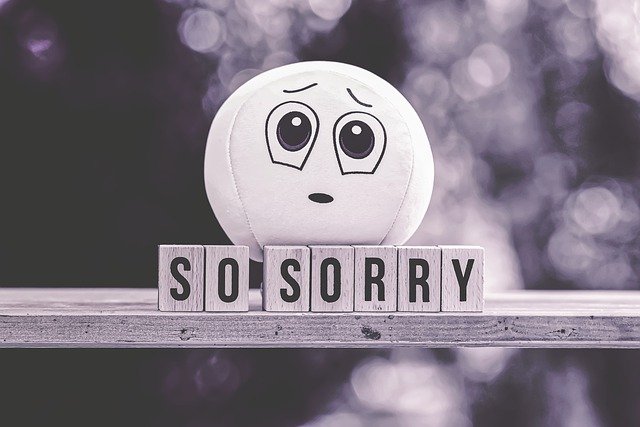Taking Responsibility for Our Actions is a Key Attribute of Quality Leadership
Apologies are a necessary, fundamental aspect of successful interactions among coworkers.
Regardless of where you work or the type of job you do, it’s almost certain you will need to apologize or accept an apology from a coworker. Well, that is assuming quality relationships and outcomes are important to you. So I’m going to assume they are; otherwise, why are you here, reading this?
Human Beings Will Make Mistakes
As long as humans, who live with feelings, egos, and individual personalities, are working somewhere, there will be situations that will offend, irritate, or hurt someone. So let’s start with that premise. It will happen to you. It happens to me.
Some people may struggle with admitting they were wrong. The process of owning up to a shortcoming is difficult for them. Others, not so much. Regardless of your personal bent, as a leader, this is a responsibility you carry, and through your behavior, set the tone for others to follow.
Don’t Overcomplicate the Apology.
Regardless of how difficult or easy, what matters with any good apology is that the apology is a sincere one.
All it takes to start an apology is to say ( and mean ) you are sorry—nothing more and nothing less.
In saying we are sorry, we are doing two things: owning our accountability and asking for forgiveness and understanding.
I have been on both ends of an apology, and I can confidently say that it feels great to receive a genuine, thoughtful “I’m sorry.”
Why Apologies are Necessary
Let’s be honest. Apologizing is not comfortable. They may not be fun, but they don’t need to be unpleasant either. Apologies are necessary because they show our coworkers our authenticity but reminds us that we are fallible and will make mistakes from time to time. A good, sincere apology can go a long way toward positively influencing any relationship.
What Makes a Good Apology?
An apology needs two components to be effective: First, acknowledging that something (someone) went wrong, and then what your part was in what went wrong. Effective apologies are genuine and demonstrate understanding. They also show that you are aware of the impact of what has gone wrong and how it has affected everyone involved.
What Makes For a Bad Apology?
A bad apology is the kind of “apology” that justifies your actions and lets you off the hook. In this case, you apologize but are also finding clever little ways to explain your behavior. For example, “I am sorry if I offended you.” The “if” in this example is tells the offended person that it is not your fault they were offended. A more effective approach would be to simply say, “I’m sorry I offended you.”
An even less helpful apology uses “but.” For example, “I’m sorry if I offended you, but you knew I was only joking.” This is a non-apology, and it is actually showing the person to whom you offer your apology your unwillingness to take any responsibility for your role and actions.
Apologies Are Important First Steps
No apology is going to erase hurt feelings or pre-existing conflict magically. But what an apology will do is make those hurt feelings or possible conflicts a little more manageable. At the bare minimum, they are the first step toward repairing a relationship. An apology is a start. It is not the solution. An apology is an important first step, and it is one that we need to learn to be comfortable doing. It doesn’t make you smaller to apologize. Instead, it demonstrates maturity and character development.
Why Remorse Matters In An Apology
Showing our remorse to those we are apologizing to is an equally powerful part of the action. Speaking our remorse helps to reset and rebuild the relationship. Remorse helps to validate the hurt feelings of those we have offended. It shows respect and acknowledges the offended person’s perspective at both a mental and emotional level.
Remorse is not just about showing our genuine regret to the person we have offended. You are required to internally reflect on why you offended the person you are apologizing to. We should all feel a bit remorseful during and after an apology. Remorse should also have us questioning our choices in the situation that led to the apology. Is there room for a value or attitude adjustment? Might we be able to approach similar situations more cautiously in the future?
Allow remorse to be your teacher. It will guide you positively in future situations. Remorse helps us learn from our mistakes. It can lead to internal change and personal growth—which, hopefully, is something we are all striving toward.
Restore Broken Relationships
When apologies are sincere and come from the right place (a genuine regret for what occurred and a desire to make amends), they can do wonders to restore communication, repair hurt feelings, and help to create more resilient, healthy relationships. The overall impact on the long-term effects cannot be overlooked.
Taking full responsibility for our actions and making no excuses about what happened shows our coworkers that we are not only committed to nurturing relationships with them but that we are also willing to learn from our mistakes and ourselves.
Sincere apologies show integrity, respect for our coworkers, compassion, and a desire to continue to grow our relationships with others.






